Caterpillar web blankets cover Norfolk hedgerows
- Published
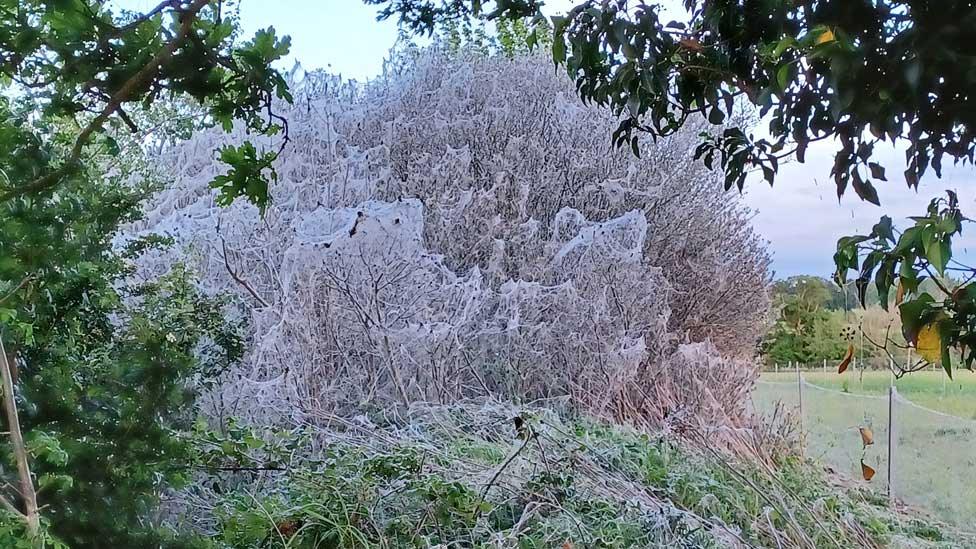
The Norfolk Wildlife Trust said they were likely to be a type of Ermine moth caterpillar, of which there are 20 species in the county
An amateur photographer has described a stretch of hedgerow covered in web-like blankets as an "incredible" sight.
Jonathan Orland, from Loddon in Norfolk, said the webs, covered in caterpillars, stretched over a 5m (16ft) section of hedge on the A146 between Chedgrave and Thurton.
"It's quite incredible to look at; they believe in safety in numbers," he said.
The Norfolk Wildlife Trust said they were likely to be a type of micro ermine moth caterpillar.
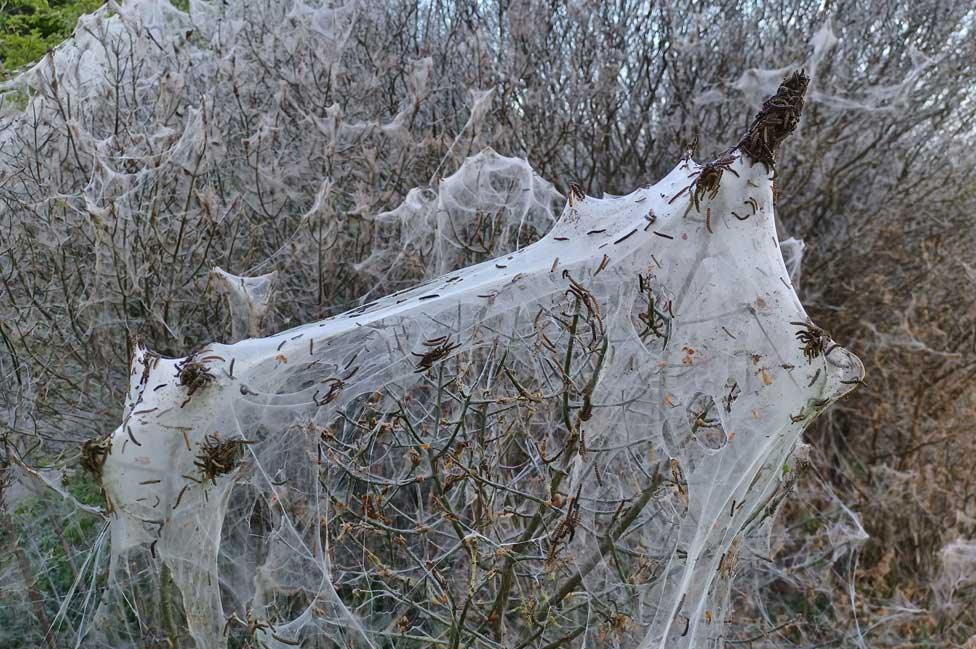
The moths produce thick webs to protect themselves from being eaten by birds
It said there were 20 species in the county and it could not confirm which it was without taking a closer look.
Bob Morgan, reserves communications officer, said: "They favour different types of plants and shrubs and you see them in hedgerows often.
"The moths produce these huge, thick webs to protect themselves against parasitic wasps and birds.
"Depending on the species, they will live on different types of plants, such as pine or nettle.
"Some years, the populations will bloom and this tends to fluctuate with the population numbers of wasps as well."
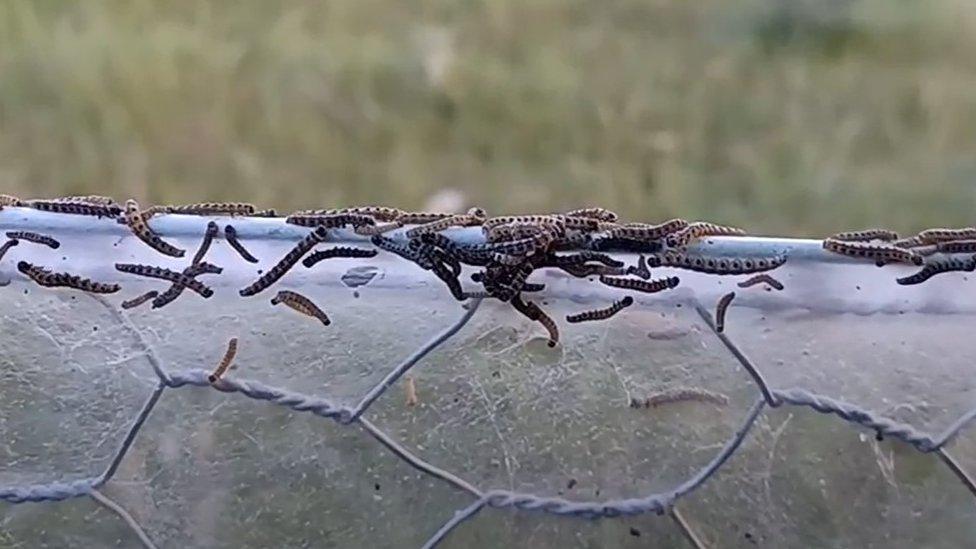
Some years, the caterpillar populations "will bloom", the trust said
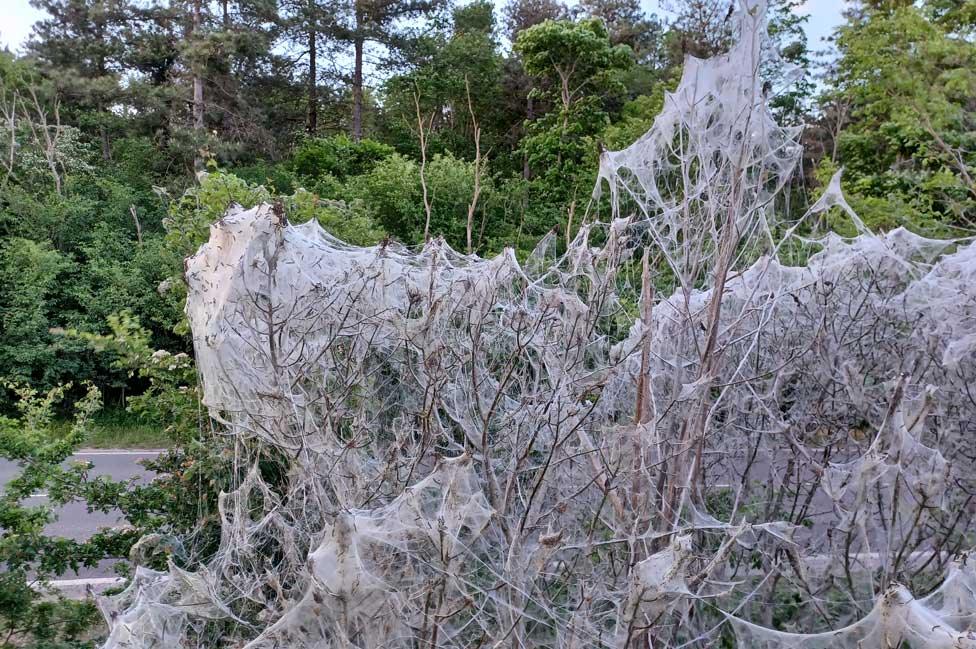
The trust said the caterpillars live on different types of plants, depending on the species
The trust added that the caterpillars usually lasted from May to June before disappearing until the adult moths set flight in the late summer.
It confirmed that the webbing does not harm the host plant and will slowly disappear once the creatures leave their temporary home.
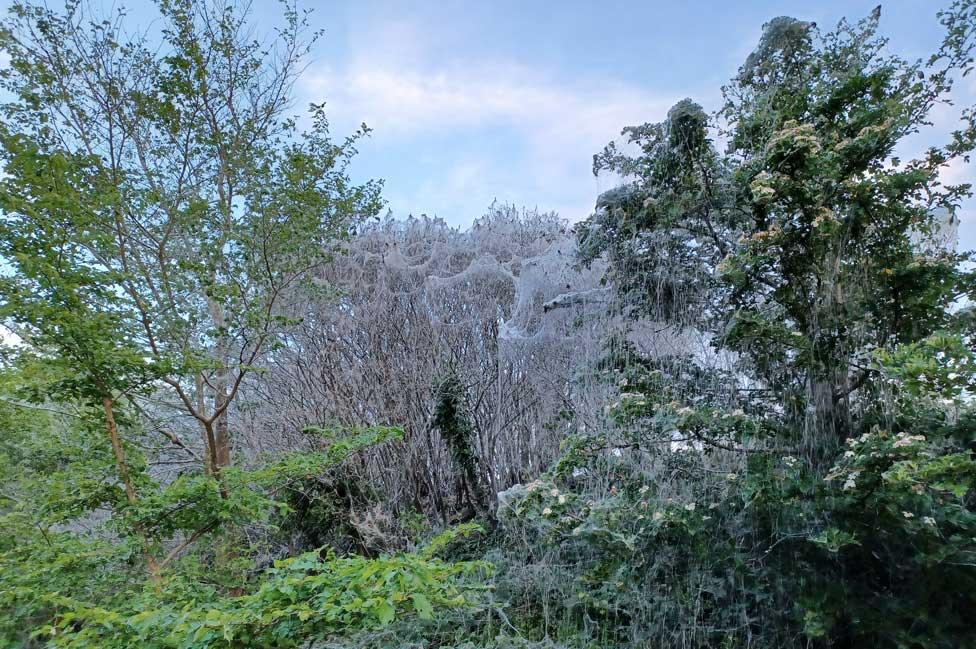
The caterpillar stage usually lasted from May to June, when the transformation into moths occurred

Find BBC News: East of England on Facebook, external, Instagram, external and Twitter, external. If you have a story suggestion email eastofenglandnews@bbc.co.uk, external
- Published11 June 2021
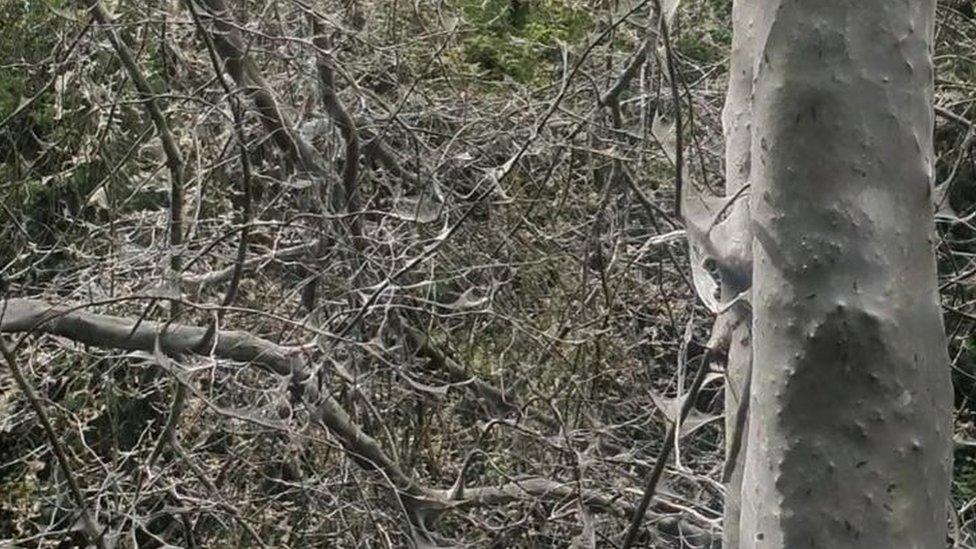
- Published19 May 2011